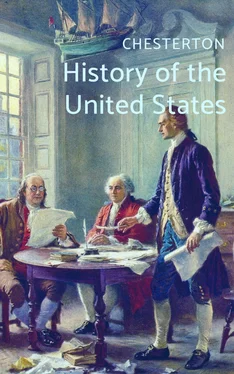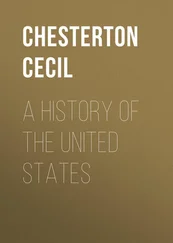The second problem was this: if Slavery was to be legal in one State and illegal in another, what was to be the status of a slave escaping from a Slave State into a free? Was such an act to be tantamount to an emancipation? If such were to be the case, it was obvious that slave property, especially in the border States, would become an extremely insecure investment. The average Southerner of that period was no enthusiast for Slavery. He was not unwilling to listen to plans of gradual and compensated emancipation. But he could not be expected to contemplate losing in a night property for which he had perhaps paid hundreds of dollars, without even the hope of recovery. On this point it was found absolutely necessary to give way to the Southerners, though Franklin, for one, disliked this concession more than any other. It was determined that "persons held to service or labour" escaping into another State should be returned to those "to whom such service or labour may be due."
The last and on the whole the least defensible of the concessions made in this matter concerned the African Slave Trade. That odious traffic was condemned by almost all Americans—even by those who were accustomed to domestic slavery, and could see little evil in it. Jefferson, in the original draft of the Declaration of Independence, had placed amongst the accusations against the English King the charge that he had forced the slave trade on reluctant colonies. The charge was true so far at any rate as Virginia was concerned, for both that State and its neighbour, Maryland, had passed laws against the traffic and had seen them vetoed by the Crown. But the extreme South, where the cotton trade was booming, wanted more Negro labour; South Carolina objected, and found an expected ally in Massachusetts. Boston had profited more by the Slave Trade than any other American city. She could hardly condemn King George without condemning herself. And, though her interest in the traffic had diminished, it had not wholly ceased. The paragraph in question was struck out of the Declaration, and when the Convention came to deal with the question the same curious alliance thwarted the efforts of those who demanded the immediate prohibition of the trade. Eventually the Slave Trade was suffered to continue for twenty years, at the end of which time Congress might forbid it. This was done in 1808, when the term of suffrance had expired.
Thus was Negro Slavery placed under the protection of the Constitution. It would be a grave injustice to the founders of the American Commonwealth to make it seem that any of them liked doing this. Constrained by a cruel necessity, they acquiesced for the time in an evil which they hoped that time would remedy. Their mind is significantly mirrored by the fact that not once in the Constitution are the words "slave" or "slavery" mentioned. Some euphemism is always used, as "persons held to service or labour," "the importation of persons," "free persons," contrasted with "other persons," and so on. Lincoln, generations later, gave what was undoubtedly the true explanation of this shrinking from the name of the thing they were tolerating and even protecting. They hoped that the Constitution would survive Negro Slavery, and they would leave no word therein to remind their children that they had spared it for a season. Beyond question they not only hoped but expected that the concession which for the sake of the national unity they made to an institution which they hated and deplored would be for a season only. The influence of time and the growth of those great doctrines which were embodied in the Declaration of Independence could not but persuade all men at last; and the day, they thought, could not be far distant when the Slave States themselves would concur in some prudent scheme of emancipation, and make of Negro Slavery an evil dream that had passed away. None the less not a few of them did what they had to do with sorrowful and foreboding hearts, and the author of the Declaration of Independence has left on record his own verdict, that he trembled for his country when he remembered that God was just.
Конец ознакомительного фрагмента.
Текст предоставлен ООО «ЛитРес».
Прочитайте эту книгу целиком, купив полную легальную версию на ЛитРес.
Безопасно оплатить книгу можно банковской картой Visa, MasterCard, Maestro, со счета мобильного телефона, с платежного терминала, в салоне МТС или Связной, через PayPal, WebMoney, Яндекс.Деньги, QIWI Кошелек, бонусными картами или другим удобным Вам способом.












